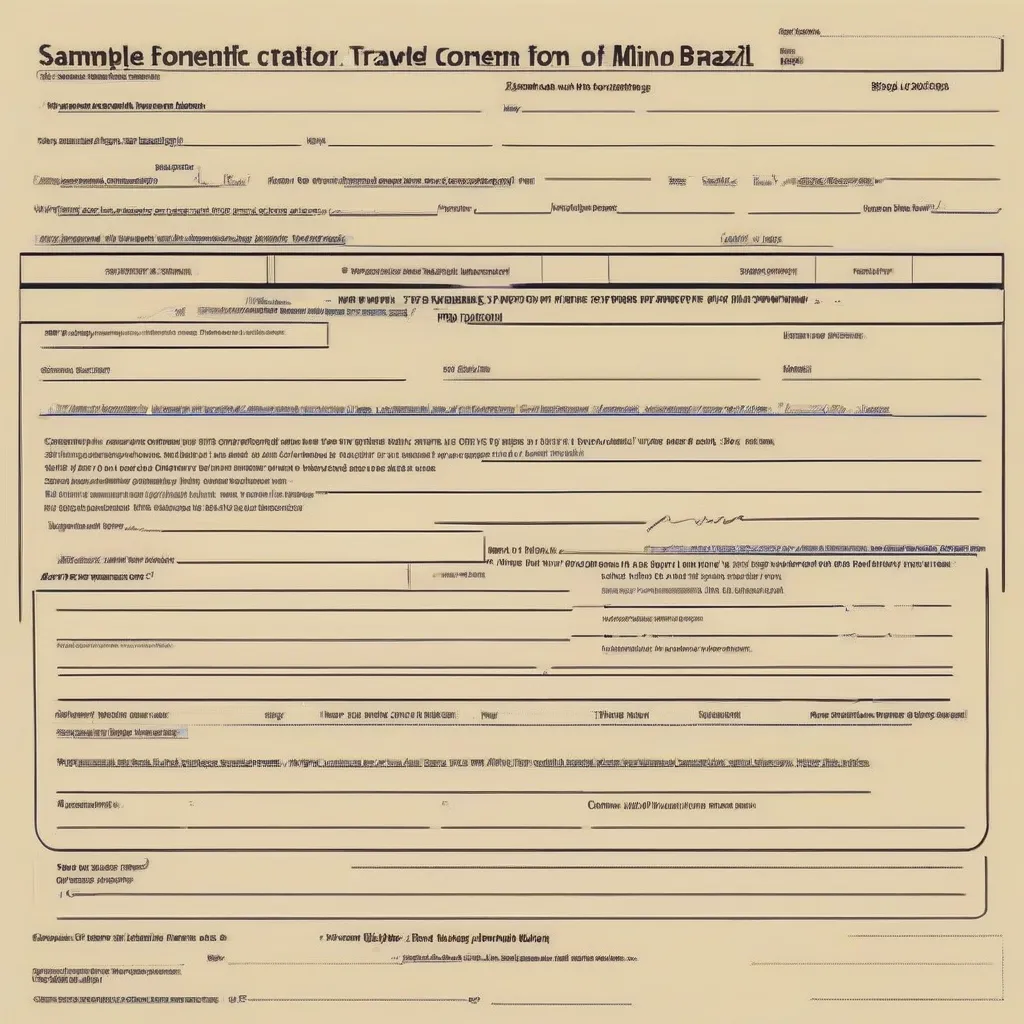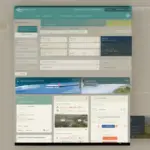Planning a trip to Brazil with your family? That’s fantastic! From the vibrant culture of Rio de Janeiro to the natural wonders of the Amazon rainforest, Brazil offers an unforgettable experience for travelers of all ages. However, if you’re traveling with a minor, there’s an essential document you need to understand: the travel consent form.
Navigating international travel requirements can seem daunting, especially with a minor. This guide will break down everything you need to know about consent forms for minors traveling to Brazil, ensuring a smooth and enjoyable journey for you and your loved ones.
Understanding the Importance of a Travel Consent Form
Imagine this: you’ve finally landed in Sao Paulo, ready to explore the city’s bustling markets and vibrant art scene. However, at immigration, you’re stopped because you lack proper documentation for your child. To avoid such a scenario, a travel consent form is crucial.
This document acts as official permission from the non-traveling parent or legal guardian, allowing the minor to enter and leave Brazil. It demonstrates to Brazilian authorities that the child is traveling with the consent of all legal guardians, preventing any issues related to child abduction.
What Should a Travel Consent Form Include?
A comprehensive travel consent form should contain:
- Full names and contact information: Of both parents or legal guardians, even if only one parent is traveling.
- Child’s information: Including full name, date of birth, passport details, and a recent photograph.
- Trip details: Destination (Brazil), travel dates, flight information (if applicable), and address of stay in Brazil.
- Notarization: It’s crucial to have the consent form notarized to validate the signatures and add an extra layer of legal protection.
 Consent Form for Brazil Travel
Consent Form for Brazil Travel
Navigating Brazilian Specifics and Potential Challenges
While the above covers the basics, be aware of these Brazil-specific considerations:
- Portuguese Translation: Having the consent form translated into Portuguese is highly recommended. While not always mandatory, it facilitates smoother processing by Brazilian authorities.
- Additional Documents: In some cases, Brazilian authorities might request supporting documents, such as:
- Birth Certificate: The minor’s birth certificate to prove the relationship between the child and the consenting parent(s).
- Court Orders: If applicable, custody agreements, court orders, or other legal documents pertaining to the child’s guardianship.
Expert Insights and Travel Tips
“When preparing for international travel with a minor, meticulous documentation is your best friend,” advises travel expert Sarah Thompson in her book “Navigating International Travel with Kids.” “A well-prepared consent form, especially for a country like Brazil with stringent entry regulations, can save you from potential headaches and ensure a smooth journey.”
 Family Vacation in Brazil
Family Vacation in Brazil
Frequently Asked Questions (FAQs)
- What if only one parent is traveling with the child?
A notarized consent form from the non-traveling parent is essential in this case. - Can I download a standard travel consent form template?
Yes, numerous websites offer free downloadable templates. However, ensure it complies with Brazilian requirements. - Do I need a consent form for a minor traveling with a group?
Yes, even if traveling with a school group or tour, a consent form signed by parents or legal guardians is usually required.
Explore More with TravelCar.edu.vn
Planning a trip to Brazil can be exciting, but understanding the necessary documentation ensures a hassle-free adventure. For further travel tips and information, visit TRAVELCAR.edu.vn, your trusted source for all things travel-related.
This guide provides a general overview and should not be considered legal advice. It’s always recommended to consult with the Brazilian embassy or consulate in your country for the most up-to-date information and specific requirements.
